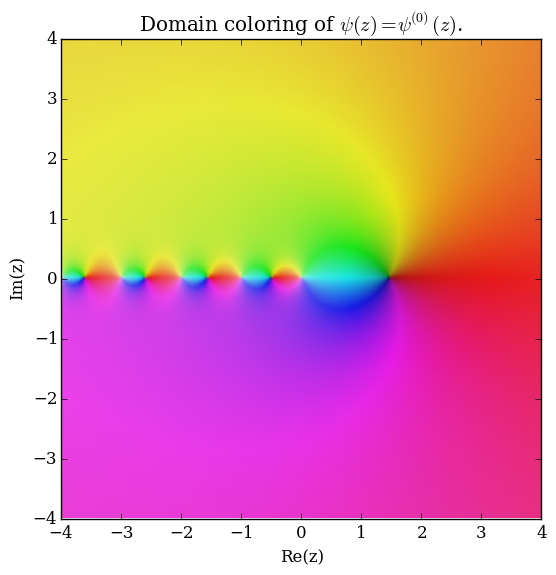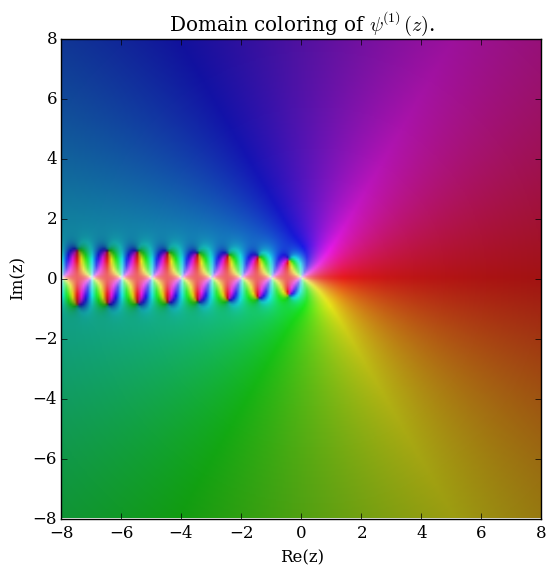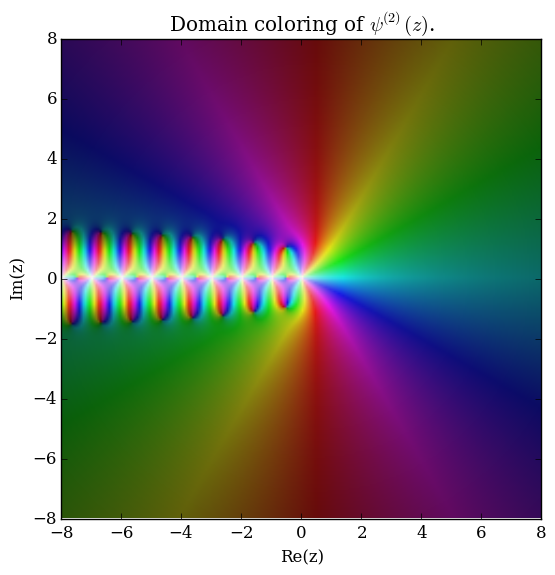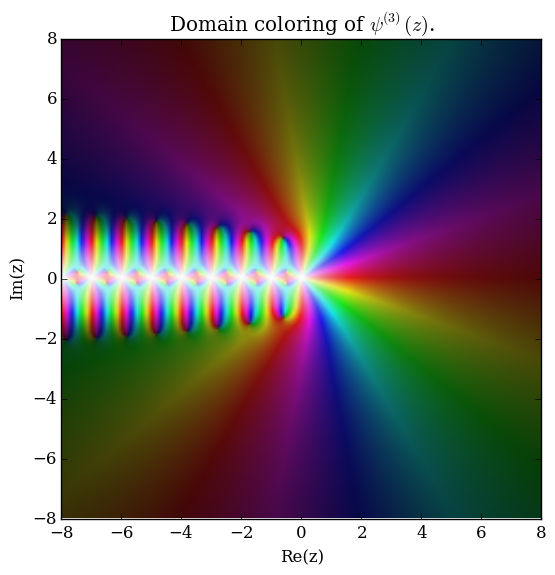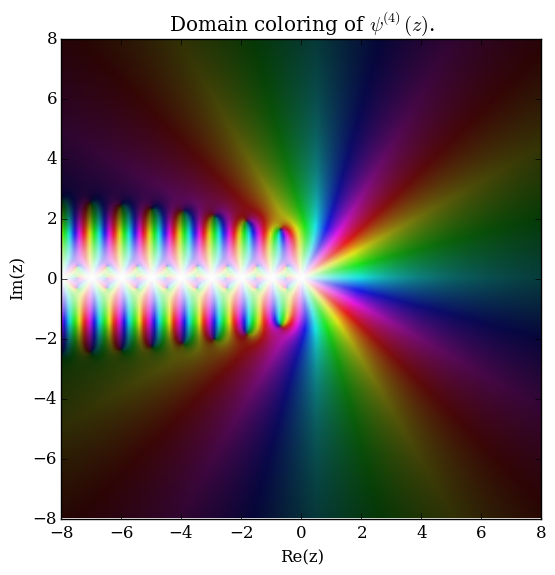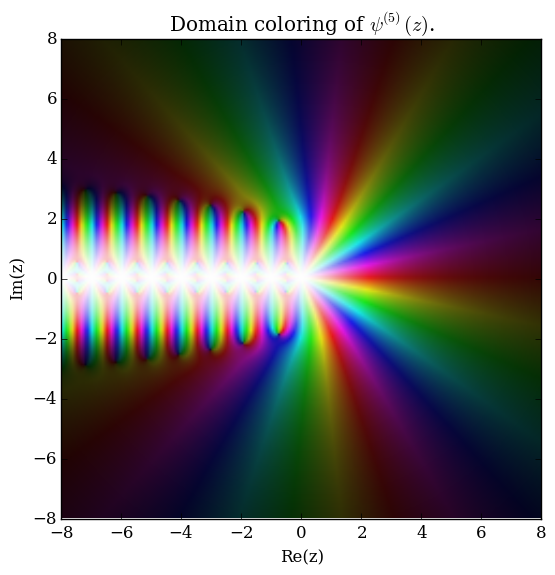Difference between revisions of "Polygamma"
From specialfunctionswiki
(→Properties) |
(→References) |
||
| Line 32: | Line 32: | ||
=References= | =References= | ||
| − | * {{BookReference|Handbook of mathematical functions|1964|Milton Abramowitz|author2=Irene A. Stegun|prev=findme|next=Integral representation of polygamma for Re(z) greater than 0}}: 6.4.1 | + | * {{BookReference|Handbook of mathematical functions|1964|Milton Abramowitz|author2=Irene A. Stegun|prev=findme|next=Integral representation of polygamma for Re(z) greater than 0}}: $6.4.1$ |
[[Category:SpecialFunction]] | [[Category:SpecialFunction]] | ||
Revision as of 22:45, 17 March 2017
The polygamma function of order $m$, $\psi^{(m)}(z)$, is defined by the formula $$\psi^{(m)}(z) = \dfrac{\mathrm{d}^{m+1}}{\mathrm{d}z^{m+1}} \log \Gamma(z),$$ where $\log \Gamma$ denotes the loggamma function. The digamma function $\psi$ is the function $\psi^{(0)}(z)$ and the trigamma function is $\psi^{(1)}(z)$.
Properties
Integral representation of polygamma for Re(z) greater than 0
Integral representation of polygamma 2
Polygamma recurrence relation
Polygamma reflection formula
Polygamma multiplication formula
Polygamma series representation
Value of polygamma at 1
Value of polygamma at positive integer
Value of polygamma at 1/2
Value of derivative of trigamma at positive integer plus 1/2
Relation between polygamma and Hurwitz zeta
See Also
References
- 1964: Milton Abramowitz and Irene A. Stegun: Handbook of mathematical functions ... (previous) ... (next): $6.4.1$
